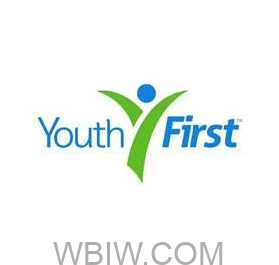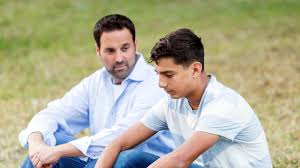
INDIANA – Anxious teens are vulnerable to experiencing panic attacks, which can be a frightening experience for both the child and the parent/caregiver.

According to the National Institute of Mental Health, panic attacks are characterized by a sudden wave of fear or discomfort or a sense of losing control when there is no apparent threat of danger.

Panic attacks are often accompanied by physical symptoms such as racing heart, dizziness, chest pain, and shortness of breath. Oftentimes, these symptoms develop without warning, so what can you do to help your anxious teen cope with a panic attack at home?
- Stay Calm and Reassuring. Even though teens won’t show it, they look to their parents and other adults for stability and reassurance that everything is okay. If a parent reacts with great concern, it can unintentionally send a message that the panic attack is severe and potentially dangerous. So, when your teen is in the midst of a panic attack, stay calm, speak soothingly, and remind them you are there for them. Your relaxed demeanor can act as a guiding light in their storm of anxiety.
- Validate Their Feelings. Let your teen know that what they’re feeling is valid and okay. Avoid judgment or dismissive remarks. Reassure them that it’s temporary and that you support them unconditionally.
- Create a Safe Space. Find a quiet, comfortable place where your teen can sit or lie down. Eliminate any triggers, if possible, and offer them a comforting item, such as a soft blanket or a favorite stuffed animal.
- Help Distract Them. There are many tools and techniques to help distract an individual during a panic attack. Exercising, playing a game, eating a snack, using ice packs to cool down the body, breathing techniques, a shower or a bath, or watching a favorite show are all techniques that can be used to distract your teen during a panic attack.
- Help Them Avoid the Panic Attack Trap. Once a teenager has a panic attack, they may become fearful of having another one and may avoid activities and situations they feel could trigger another attack. As a result, your teen may try to avoid school, social activities, family events, or sports. While understandable, this avoidance only worsens anxiety and increases the chance of more panic attacks. It is essential to encourage your teen to face these situations while at the same time empathizing with how challenging it is to confront a scary situation.

Your understanding, patience, and support can make a significant difference in these moments. By being a source of strength, you can help your teenager manage panic attacks and, in the process, strengthen your parent-child relationship.

Hailey Hagan, MSW, is a Youth First Social Worker at Stockwell Elementary School in Vanderburgh County. Youth First, Inc., is a nonprofit dedicated to strengthening youth and families. Youth First provides 90 highly trained mental health professionals (primarily master’s level social workers), prevention programs, parent engagement coordinators, and bilingual support personnel to 125 schools across 14 Indiana counties. Over 50,000 youth and families per year are served by Youth First’s school-based social work and community programs that promote mental health, prevent substance misuse, and maximize student success. To learn more about Youth First, visit youthfirstinc.org or call 812-421-8336.



